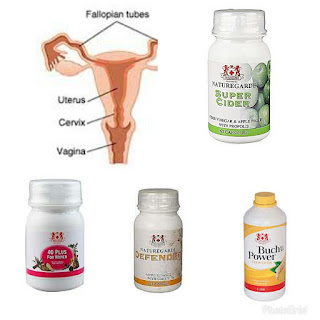Blocked fallopian tubes are one possible cause of female infertility. There are usually no symptoms, but there are some risk factors that can increase the chance of developing the condition. The medical term for a blocked fallopian tube is tubal occlusion. The fallopian tubes play an important role in conception because they are where most eggs are fertilized. If any part of the fallopian tube is damaged, for example by surgery or an infection, they can become blocked by scar tissue.
SYMPTOMS
Blocked fallopian tubes do not often present symptoms other than difficulty conceiving. Doctors typically class this as having tried to conceive for 1 year without success. A blocked fallopian tube may cause some women to experience symptoms such as pain in the pelvis or belly. This pain might happen regularly, such as around the time of their period, or be constant. Sometimes, a blockage in a fallopian tube can cause a fertilized egg to get stuck. This is known as an ectopic pregnancy. An ectopic pregnancy may not always cause symptoms and is usually detected during a scan. However, some woman may experience signs of pregnancy, such as stomach pain on one side of the body, or vaginal bleeding. Any woman who suspects she has an ectopic pregnancy should seek immediate medical attention.
CAUSES
Fallopian tubes can become blocked for a range of reasons, which include:
* a history of pelvic infection
* a previous burst appendix
* having had a sexually transmitted disease, such as gonorrhea or chlamydia
* endometriosis, a condition that causes the lining of the womb to grow outside
of the uterus
* history of abdominal surgery hydrosalpinx, which is swelling and fluid at the end of a fallopian tube
DIAGNOSIS
Blocked fallopian tubes can be difficult to identify. The tubes can open and close, so it is not always easy to tell if they are blocked or just closed. There are three key tests to diagnose blocked fallopian tubes:
* An X-ray test, known as a hysterosalpingogram or HSG. A doctor injects a harmless dye into the womb, which should flow into the fallopian tubes. The stain is visible on an X-ray. If the fluid does not flow into the fallopian tubes, they may have a blockage.
* An ultrasound test, known as a sonohysterogram. This is very similar to the HSG test but uses sound waves to build up a picture of the fallopian tubes. * Keyhole surgery, known as a laparoscopy. A surgeon makes a small cut in the body and inserts a tiny camera to take pictures of the fallopian tubes from inside. A laparoscopy is the most accurate test for blocked tubes. However, doctors may not recommend this test as an early diagnosis because it is invasive and cannot treat the issue. A doctor may be able to suggest a possible diagnosis based on medical history. For example, a woman may have had a burst appendix in the past. If the woman has had difficulty conceiving, this could suggest blocked fallopian tubes as a likely cause.
TREATMENT AND SURGERY
It may be possible to open blocked fallopian tubes surgically. However, this depends on the extent of the scarring and where the blockage is. Surgery aims to open the fallopian tube using one of the following methods:
* removing scar tissue
* making a new opening on the outside of the fallopian tube
* opening the fallopian tube from the inside
POSSIBLE COMPLICATION
Surgery to open the fallopian tubes carries the same potential complications as any surgery. These include: * infection * creation of more scar tissue * damage to organs * bleeding
HERBAL REMEDY
Health Fertility Cleansing Fertility cleansing helps to cleanse the entire reproductive system and increase circulation to the reproductive organs. Starting your natural fallopian tube therapy should begin with fertility cleansing. The herbs in this cleanse are absorbed into the body and go to work where they are needed. Fertility Cleansing creates a “clean slate” within the body that helps the body to respond and utilize other natural remedies better. When handling blocked fallopian tube cases use Aloe Power or Buchu Power, Super cider and Defender for fertility cleansing. They contain herbal extract that perform the actions earlier mentioned. There are many herbs that have been traditionally used to help support fallopian tube health. Herbal medicine categorizes herbs by different types of actions. When working to improve fallopian tube health, there are 4 key actions we like to focus on, they are as follows…
Antibiotic: The antibiotic acting herbs help to clear out any infection that may exist in the reproductive system or fallopian tubes. Supporting immune function with antibiotic herbs may be important if there is a history of PID, STDs, abdominal surgery, or endometriosis.
Anti-inflammatory: Anti-inflammatory herbs help to reduce inflammation, which in turn reduces pain and works to reduce further scar tissue production. If inflammation persists in or around the fallopian tubes, scar tissue may form.
Circulatory: There are herbs that help to increase blood flow through the reproductive organs. Healthy circulation to the reproductive organs is vital to healing the fallopian tubes. This is because fresh healthy blood will bring in vital nutrients, enzymes and oxygen for healing cells. Once the cells have used up what they need and have renewed or have replaced old damaged or unhealthy cells, the metabolic waste (damaged tissues) is removed from the body.
Hormone Balancing: Remember that hormonal balance is essential for proper fallopian tube function. When working to support fallopian tube health, we always want to include some herbs that support hormonal balance. The complete pack which Swissgarde provides that can open up the tubes are :
Buchu Power
Aloe Power
Super cider
40 plus for women
Defender
WhatsApp or call 08159152813

Comments
Post a Comment